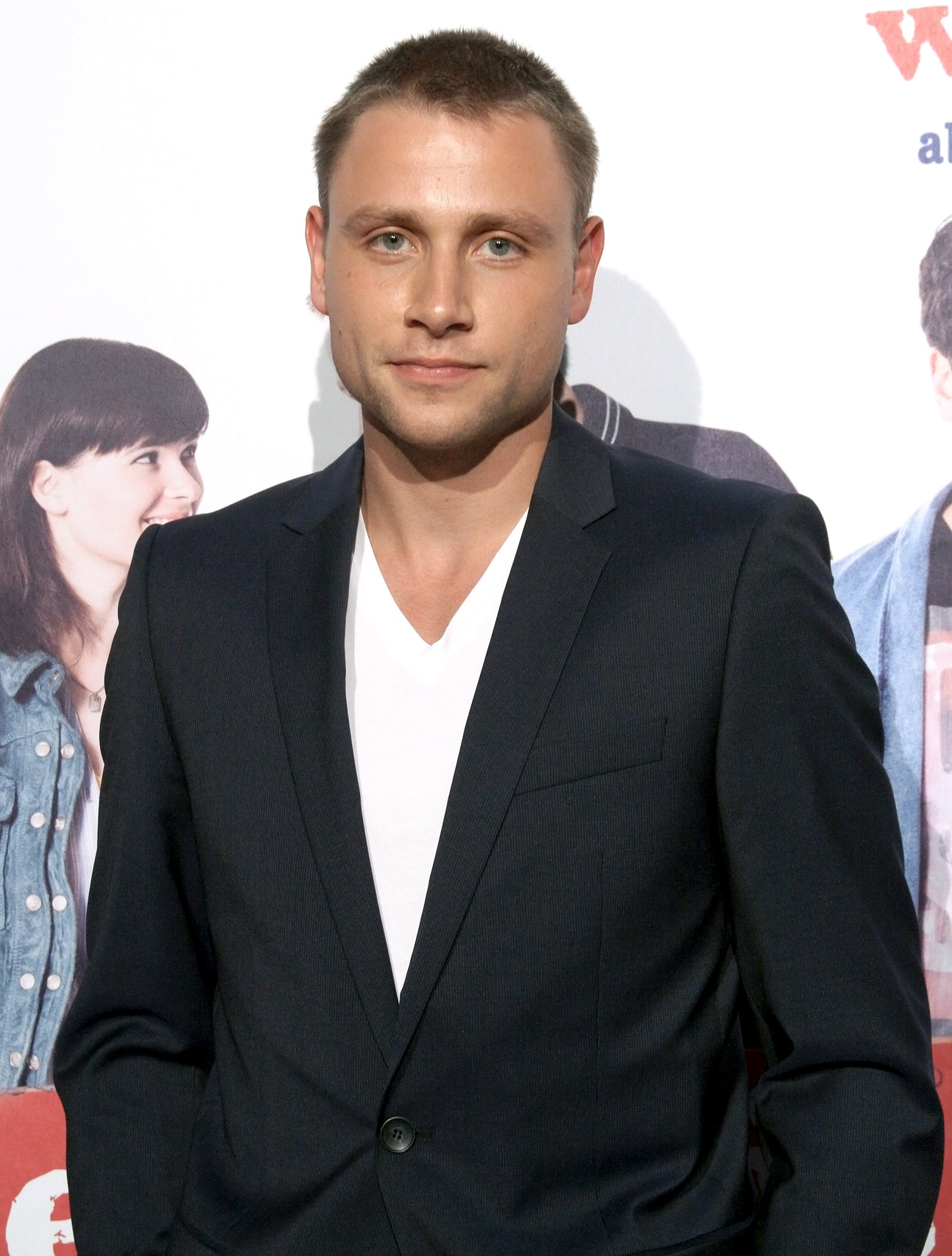Max Riemelt: Berlin’s Bridge Between German Cinema and Global Streaming
Max Riemelt has established himself as one of Germany’s most compelling screen actors, building a career that elegantly bridges his country’s respected film tradition with international productions. At 41, the Berlin-born performer has crafted a body of work characterized by emotional intensity, physical commitment, and an understated authenticity that has earned him significant recognition both within Germany and, increasingly, on the global stage. Through his pivotal role in the Netflix series Sense8 and his extensive work in German cinema, Riemelt has emerged as a cultural ambassador of sorts—introducing international audiences to German performance traditions while bringing global visibility to his homeland’s film industry.
East Berlin Origins and Formative Years
Born in January 1984 in East Berlin during the final years of the German Democratic Republic, Riemelt’s early life was shaped by a city and country in profound transition. Though he was only six years old when the Berlin Wall fell, growing up in the aftermath of reunification provided him with a unique perspective on cultural and political change that would later inform his approach to characters navigating systemic upheaval or personal transformation.
“Being a child during that period of enormous change gives you a particular lens on the world,” Riemelt explained in an interview with Berliner Zeitung. “Even as a very young person, you absorb this understanding that social systems that seem permanent can collapse overnight, that identity—both personal and collective—is more fluid than we like to believe. That perspective has been invaluable when approaching characters caught between different worlds or value systems.”
Unlike many successful actors, Riemelt did not pursue formal drama school training, instead developing his craft through practical experience beginning in his adolescence. This unconventional path allowed him to develop a naturalistic acting style unconstrained by particular methodological approaches—a freshness and authenticity that directors quickly recognized and valued.
“I learned by doing, by watching, by making mistakes in real production environments rather than classroom settings,” Riemelt told Cinema.de. “There are advantages and disadvantages to that approach. I sometimes had to work harder to develop certain technical skills that might have come more systematically through formal training, but I also maintained a certain spontaneity and instinctive response to material that formal methods can sometimes inadvertently diminish.”
This combination of intuitive emotional intelligence and gradually acquired technical skill would become hallmarks of Riemelt’s performances throughout his career, allowing him to convey complex emotional states with remarkable efficiency and minimal external indication.
Building a Foundation in German Cinema
Riemelt’s professional career began at the remarkably young age of 13 when he was cast in the German television production Eine Familie zum Küssen (A Family to Kiss). This early opportunity initiated a steady progression of increasingly substantial roles in German television and film throughout his teenage years, providing him with practical experience that served as his real-world drama education.
His first significant breakthrough came with the 2001 film Mädchen, Mädchen (Girls, Girls), a coming-of-age comedy that became a commercial success in Germany. While the film itself was a relatively light teen comedy, Riemelt’s performance suggested depths beyond the material, with critics noting his ability to bring unexpected emotional nuance to conventional scenes.
This early promise was more fully realized in Dennis Gansel’s 2004 drama Napola (Before the Fall), where Riemelt portrayed Friedrich Weimer, a talented boxer in Nazi Germany who receives an opportunity to attend an elite National Political Academy (Napola) despite his working-class background. The film explored the seductive power of belonging and recognition, particularly for young men seeking purpose and identity, with Riemelt’s performance capturing both the initial intoxication of acceptance and the gradual moral awakening as his character recognizes the true nature of the system embracing him.
“Napola was a crucial project for me,” Riemelt reflected in a retrospective interview with German film magazine Kino. “It required engaging with Germany’s darkest historical period while avoiding simplistic moral judgments about the characters caught within that system. Friedrich isn’t evil—he’s a young man desperate for opportunity and recognition who slowly comes to understand the moral corruption of the world he’s entered. Finding that balance—showing his genuine excitement and ambition without excusing the choices he makes—was an incredibly complex challenge.”
This performance established Riemelt as a young actor capable of carrying substantive dramatic material, leading to a series of roles in both historical and contemporary German productions that solidified his reputation within the German film industry. Films like Die Welle (The Wave, 2008), which explored how fascist principles could take root in a modern German high school, further demonstrated his ability to engage with complex social and historical themes through psychologically nuanced characterization.
Throughout this period, industry observers noted Riemelt’s particular gift for physical expressiveness—his ability to communicate emotional states through posture, movement, and subtle gestural language rather than relying primarily on dialogue or facial expression. This physicality would become one of his most distinctive qualities as a performer, allowing him to create characters whose internal lives are revealed as much through their bodies as their words.
Critical Acclaim with Free Fall
Riemelt’s career reached a new level of critical recognition with the 2013 film Freier Fall (Free Fall), in which he portrayed Kay Engel, a police officer who begins a relationship with a fellow officer who has previously identified as heterosexual and is engaged to a woman. The film, which examined the personal and professional consequences of this relationship within the conservative environment of German law enforcement, required exceptional emotional vulnerability from both Riemelt and co-star Hanno Koffler.
What distinguished Riemelt’s performance was his ability to convey both the character’s comfort with his own sexuality and his genuine empathy for his lover’s more conflicted experience. Rather than portraying Kay as either a tempter or a victim, Riemelt created a fully realized character with his own emotional needs, ethical boundaries, and capacity for both joy and hurt.
“The challenge with Kay was creating someone who feels completely authentic in his own skin while still acknowledging the very real pain and confusion that comes with loving someone who isn’t fully available to you,” Riemelt explained to queer German publication Siegessäule. “It would have been easy to make him either too idealized or too much of a martyr, but the truth of the character existed in a more complex middle ground—someone confident in his identity but still vulnerable to the pain of loving someone who can’t fully reciprocate.”
The film received significant critical acclaim in Germany and at international film festivals, with particular praise directed toward the chemistry between Riemelt and Koffler and the nuanced exploration of masculinity within traditional institutions. For many international audiences, Free Fall provided their first exposure to Riemelt’s work, establishing him as a performer capable of bringing extraordinary emotional authenticity to complex material.
Beyond its artistic merits, Free Fall also represented an important cultural document in German cinema’s exploration of LGBTQ+ experiences—part of a broader shift toward more diverse and inclusive storytelling in a film tradition that had historically centered heteronormative perspectives. Riemelt’s willingness to fully commit to the role, including intimate scenes that required significant vulnerability, contributed to the film’s impact on audiences and its role in expanding representational boundaries in German cinema.
“What made Free Fall significant beyond its artistic merits was its matter-of-fact treatment of same-sex desire within an institution traditionally associated with conventional masculinity,” noted a German film critic. “Riemelt’s performance was crucial to this achievement—his portrayal of Kay as simultaneously comfortable with his sexuality and authentically embedded in the masculine culture of policing helped the film avoid simplistic oppositions between queer identity and traditional male social spaces.”
The film’s success further elevated Riemelt’s standing in German cinema while also bringing him to the attention of international casting directors and filmmakers seeking actors who could bring emotional depth and physical authenticity to complex material—attention that would soon lead to his most globally recognized role.
International Recognition: Wolfgang in Sense8
Riemelt’s career expanded dramatically when he was cast as Wolfgang Bogdanow in the Netflix science fiction series Sense8, created by Lana and Lilly Wachowski and J. Michael Straczynski. As a Berlin-based safecracker and organized crime figure who discovers a psychic connection with seven other individuals around the world, the role required Riemelt to balance the specificity of his character’s Berlin criminal underworld with the show’s global concerns and supernatural elements.
What made Wolfgang particularly compelling was Riemelt’s ability to convey both streetwise toughness and profound emotional vulnerability—often in the same scene. The character’s capacity for unflinching violence contrasted with his deep loyalty and ethical code, creating a complexity that made Wolfgang one of the show’s most popular characters despite his morally ambiguous actions.
“Wolfgang exists in this fascinating moral space,” Riemelt told Variety. “He’s capable of extreme violence but has an unwavering moral code within the context he understands. He’s not conventionally ‘good’ by any means, but he has absolute clarity about loyalty, responsibility, and protecting those he considers family. Finding that balance—making his capacity for violence believable while still allowing audiences to connect with his underlying humanity—was the core challenge of the role.”
Beyond the character’s individual journey, Sense8 required Riemelt to develop a unique performance approach for scenes depicting psychic connection between the eight “sensates.” These sequences demanded that the actors create a seamless sense of shared consciousness while maintaining their individual characters’ distinct identities—a challenge Riemelt met with remarkable technical precision and emotional fluidity.
“The sensate scenes required a completely different technical approach than anything I’d done before,” Riemelt explained in a Netflix featurette. “You’re physically in one location but emotionally present in another, sometimes even embodying another character’s skills or knowledge while maintaining aspects of your own identity. It required developing a performance language with the other actors where we could suggest this merging of consciousness through subtle physical and vocal adjustments.”
This role significantly expanded Riemelt’s international visibility, introducing him to global audiences and demonstrating his ability to work effectively in English-language productions without sacrificing the emotional authenticity that had distinguished his German work. The show’s devoted fan base responded particularly strongly to Wolfgang’s character arc, with viewers appreciating both the character’s complexity and Riemelt’s nuanced portrayal.
The global production schedule of Sense8 also provided Riemelt with valuable experience working across different international filming environments, from Berlin and London to Seoul and Mexico City. This exposure to diverse production approaches and acting traditions enriched his technical repertoire while reinforcing his natural adaptability across cultural contexts.
“Sense8 was this extraordinary global education,” Riemelt told The Hollywood Reporter. “Beyond the obvious benefits of increased visibility, it exposed me to filmmaking traditions and performance approaches from around the world. Working alongside actors from such diverse backgrounds and training traditions forced me to develop new technical skills while strengthening my core approach to character development.”
Though the series was canceled after two seasons (with a special finale episode commissioned due to fan demand), it significantly enhanced Riemelt’s international profile and demonstrated his capacity to bring his distinctive performance qualities to English-language material without compromising his artistic integrity.
Balancing German and International Productions
Following Sense8, Riemelt has strategically balanced work in German productions with international opportunities, maintaining his connection to his country’s film tradition while building on his global recognition. This approach reflects both practical career management and a genuine commitment to participating in Germany’s evolving cinematic culture even as his international options expand.
In German cinema, he has continued to select projects that engage with significant social and historical themes, including the 2019 film Kopfplatzen (Balloon), which explored the struggle of a man trying to resist pedophilic urges—perhaps the most challenging role of Riemelt’s career and one that demonstrated his willingness to engage with deeply uncomfortable material when it serves a meaningful artistic purpose.
“There are certain roles that require absolute commitment despite their difficulty or potential for misunderstanding,” Riemelt explained to German film magazine EPD Film. “With Kopfplatzen, the subject matter is obviously incredibly sensitive, but the film approached it with genuine seriousness—not as exploitation or sensationalism but as an honest exploration of someone fighting against deeply destructive impulses. Those are precisely the kind of complex human experiences that cinema should be willing to examine, however uncomfortable the process might be.”
On the international front, Riemelt has appeared in productions like the Netflix thriller series Kidnapping Stella and the French-German co-production Berlin Syndrome, further demonstrating his versatility across languages and national filmmaking traditions. Rather than relocating to Hollywood or London, however, he has maintained Berlin as his home base—a choice that reflects both personal preference and professional strategy.
“Berlin remains the center of my creative life,” Riemelt told Der Spiegel. “There’s something about this city’s constant evolution, its layers of history and reinvention, that continues to inspire me. Professionally, remaining based here allows me to stay connected to German film culture while still being available for international projects. That balance feels essential to maintaining the artistic perspective that defines my work.”
This commitment to German cinema while engaging with global opportunities positions Riemelt as part of a generation of German actors including Daniel Brühl and Sandra Hüller who have achieved international recognition while continuing to contribute significantly to their national film tradition—creating valuable bridges between these sometimes separate cinematic worlds.
Performance Style and Artistic Approach
Directors and co-stars who have worked with Riemelt consistently mention his unusual combination of technical precision and emotional immediacy. Unlike performers who rely primarily on either technical skill or raw emotional access, Riemelt integrates these approaches, bringing meticulous preparation and physical control to scenes that nevertheless feel spontaneous and emotionally authentic.
“Max has this extraordinary physical precision,” observed a director who has worked with him on multiple projects. “Every gesture, every shift in posture feels completely organic to the character but is actually the result of careful preparation and body awareness. He understands exactly how much physical information is needed to communicate complex emotional states without overplaying—a rare skill that makes him incredibly effective on camera where subtle detail registers so powerfully.”
This physical expressiveness is complemented by what colleagues describe as exceptional emotional availability—a willingness to access and reveal vulnerable states without self-consciousness or protective distancing. This quality has made Riemelt particularly effective in roles requiring characters to navigate intense emotional terrain, from grief and loss to desire and fear.
“What sets Max apart is his absolute commitment to emotional truth,” noted a co-star from Sense8. “There’s no sense of an actor protecting himself from the character’s more difficult experiences—he’s willing to fully inhabit states of vulnerability, rage, or desire without the distancing you often see with performers concerned about how they’re being perceived. That courage creates extraordinary moments of authentic human connection on screen.”
Riemelt’s linguistic abilities—he works comfortably in both German and English—have also contributed to his versatility across national cinemas. Colleagues note that his English-language performances maintain the same emotional authenticity as his German work, without the slight disconnect that sometimes occurs when actors work in secondary languages.
“Language is certainly another technical element to manage,” Riemelt explained to Cinema.de, “but once you develop sufficient comfort with the mechanics, the fundamental approach to character and emotional truth remains consistent regardless of which language you’re speaking. The human experiences we’re portraying transcend linguistic differences, even if certain cultural contexts require subtle adjustments in expression or physical language.”
Personal Convictions and Private Life
Despite his increasing public profile, Riemelt has maintained remarkable privacy regarding his personal life—a boundary that colleagues and journalists describe as firm but not unfriendly. This selective approach to public exposure reflects both German cultural attitudes toward celebrity, which tend to be more reserved than American or British traditions, and Riemelt’s personal preference for separating his professional work from his private experiences.
“I’ve never quite understood the assumption that being an actor means surrendering your privacy,” Riemelt told Süddeutsche Zeitung in a rare comment on the subject. “My job is to portray other people’s lives, not to make my own life an open book. Maintaining some personal boundaries actually serves the work—it allows me to observe and absorb human experience without constantly performing my own identity for public consumption.”
Despite this general privacy, Riemelt has been vocal about certain social and political convictions, particularly his support for LGBTQ+ rights—a position influenced by both his work on projects like Free Fall and personal values. Unlike performers who separate their artistic choices from their social perspectives, Riemelt acknowledges the connection between his work portraying diverse human experiences and his support for expanded rights and representation for marginalized communities.
“Working on Free Fall and later Sense8 certainly deepened my understanding of the importance of LGBTQ+ representation and rights,” Riemelt acknowledged during a film festival panel. “When you’ve invested yourself emotionally in portraying characters whose fundamental dignity and freedom are questioned by society, you can’t help but recognize the real human cost of discrimination and exclusion. That’s the power of storytelling at its best—it bridges the gap between abstract political positions and lived human experience.”
This perspective reflects Riemelt’s broader understanding of acting as an exercise in empathy and human connection rather than merely technical performance or personal promotion—an approach that has informed both his role selections and his public positions on social issues.
Legacy and Future Trajectory
At 41, Max Riemelt has established himself as an actor of remarkable range and emotional authenticity, with a body of work that spans intimate German dramas and ambitious international productions. Unlike performers who achieve international recognition by abandoning their national cinema traditions, Riemelt has successfully integrated these worlds, bringing the emotional depth and technical precision of German performance traditions to global audiences while introducing international production values and storytelling approaches to his German work.
Industry observers note that Riemelt’s career reflects a broader evolution in global cinema, where streaming platforms and international co-productions have created more fluid boundaries between national film industries. His successful navigation of these changing conditions—maintaining artistic integrity while embracing expanded opportunities—provides a potential model for actors seeking to balance local cultural connections with global reach.
“What makes Max particularly valuable in today’s production landscape is his authenticity across contexts,” observed a German producer who has worked with him. “He brings the same emotional commitment and technical precision to a Netflix series that he does to an intimate German drama. That consistency allows him to move between different scales and styles of production without compromising his fundamental artistic approach.”
Looking ahead, industry sources suggest Riemelt may be exploring opportunities for greater creative control, potentially moving into production or even direction as his career progresses. This evolution would align with his demonstrated interest in complex, socially engaged storytelling and his comprehensive understanding of the filmmaking process developed through decades of on-set experience.
“I’m increasingly interested in the broader storytelling process beyond performance,” Riemelt acknowledged in a recent interview with Film Plus. “Acting remains my primary passion, but after years of observing directors and cinematographers shape narrative through visual choices, I’m naturally curious about exploring those elements more directly. Whether that leads to directing or producing remains to be seen, but I’m certainly open to expanding my creative involvement as the right opportunities emerge.”
Regardless of these potential expansions, Riemelt seems likely to maintain his commitment to emotionally authentic, physically grounded performance across diverse projects and production contexts. His unique combination of technical precision, emotional availability, and cultural fluidity positions him ideally for continued relevance in an increasingly global entertainment landscape where traditional boundaries between national cinemas continue to evolve.
In a film industry often defined by specialization—actors known primarily for specific genres or character types—Max Riemelt has built a career characterized by versatility, emotional courage, and consistent artistic integrity across diverse projects and production scales. From intimate German dramas exploring complex moral questions to ambitious international series with global themes, his work reveals a performer for whom emotional truth remains the constant foundation regardless of context—a quality that suggests continued artistic growth and expanding creative possibilities in the years ahead.








